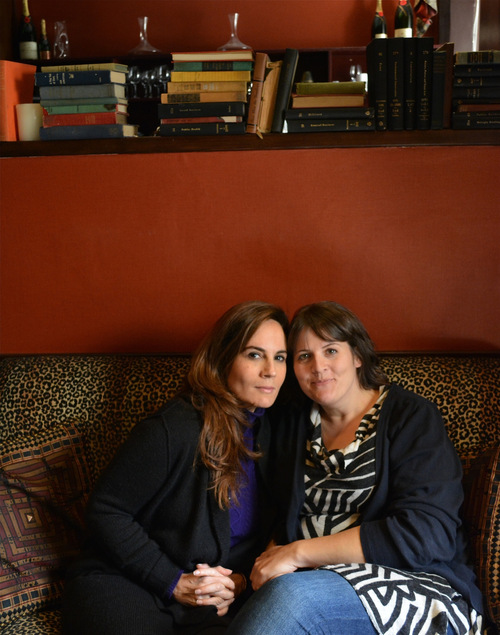
An Interview with Emily Wachtel and Megan Griffiths on Lucky Them
At noon, I entered the Royal York hotel to meet Emily Wachtel, the writer, and Megan Griffiths, the director, of Lucky Them. The film follows a rock journalist (Toni Collette) in Seattle who is assigned to find her ex-boyfriend, a musician who went missing a decade earlier. The film is produced by Mymy Productions in association with Tangerine Entertainment, which produces films by female directors. Recently, IFC Films has acquired U.S. rights to Lucky Them. When I found Emily and Megan, they welcomed me warmly, and while speaking with them, I tried to further define what it meant to be a “feminist filmmaker.”
—Julia Edelman
THE BELIEVER: So why did you choose to set the film in Seattle?
MEGAN GRIFFITHS: It was originally set in New York, but it has a long history. One of the first conversations we had was what would happen if we changed the backdrop to Seattle. And it just seemed to make sense because it’s a town that’s known for its music scene, specifically grunge in the early nineties.
BLVR: Do you think that being removed from concentrated film scenes in New York and L.A. made it harder or easier to make the film?
MG: I think I established such a good team there that it was nothing but easier to make it in Seattle.
EMILY WACHTEL: I know it’s way easier than it would have been in New York.
BLVR: Yeah, definitely. So this film stars, is directed, and written by women, but what do you think essentially constitutes a feminist film?
MG: That’s a tough question. I think feminism to me is the idea that women are equally important and their stories are equally important and just as entertaining. It’s difficult to make a movie about a complicated, non-traditional female character, and this movie is definitively that. Toni’s character is not conventional; she’s not married, she doesn’t seem to want kids, and it is a different lifestyle. We see a lot more movies with male characters who are at that point in their lives, but not that many about females.
EW: I don’t think in terms of feminist and not feminist, but I will say in a weird way, this movie is like a female bromance. The relationship between her and Charlie is a friendship, so it’s kind of a different spin.
MG: The goal is not to ride off into the sunset with the knight; it’s to free herself to move forward.
EW: But it’s so funny, I think of films in terms of art, not whether it’s feminist or not...
You have reached your article limit
Sign up for a digital subscription and continue reading all new issues, plus our entire archives, for just $1.50/month.
Already a subscriber? Sign in




